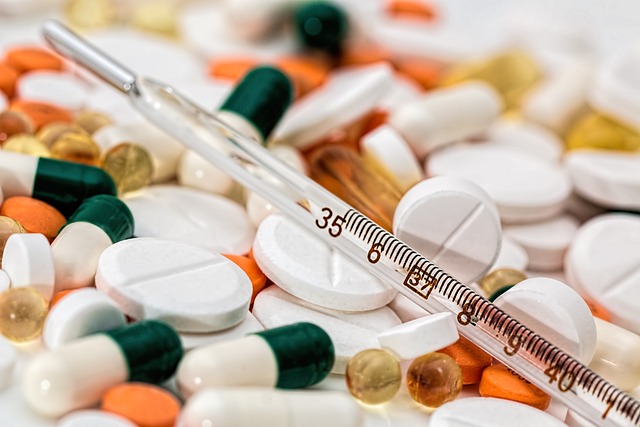How does the National Football League’s (NFL) Performance-Enhancing Drugs or PED policy affect players who grow Jack Herer strain seeds?
Find out what the regulations cover, their implementation, and the penalties violators face. Then, let’s dive into it.
Understanding the PED Policy
The Performance-Enhancing Drugs policy is a joint effort of the National Football League Management Council and the NFL Players Association (NFLPA).
It prohibits and prevents coaches, trainers, and agents from prescribing them, and athletes from using the following substances:
– Anabolic/androgenic steroids
– Exogenous testosterone stimulants
– Natural or synthetic human or animal growth hormones
Using these banned elements violates the provisions of the NFL Player Contract and the League’s Constitution and Bylaws. The former forbids the consumption of drugs to alter or boost performance. In addition, both agreements prohibit conduct detrimental to the professional football league.
The NFL Commissioner has a duty to the game’s integrity and public confidence in it, including the authority to ban the use of substances in the PED policy.
PED Policy Rationale
The National Football League Management Council and NFLPA introduced the Performance-Enhancing Drugs policy to achieve several objectives.
First, the specified substances affect the competitive fairness and integrity of the game on the playing field. For example, players might consume them to become bigger, faster, and stronger than they would otherwise be.
This behavior may affect game results and teams’ league positions and unfairly compel others to do the same to compete effectively.
The policy also addresses concerns about the adverse health effects of using the banned drugs. Although research is ongoing, findings link steroid use to physiological, psychological, and other severe health issues, including:
– Heart disease
– Liver cancer
– Musculoskeletal growth defects
– Strokes
– Infertility
Another answer to the question, “What is the PED policy?” is that it aims to prevent the spread of prohibited substance use. The governing bodies don’t approve of players using disallowed drugs to convey the wrong message to younger NFL athletes.
They want to ensure that such conduct won’tt suggest that it’s safe or acceptable on or off the field.
Testing for PED
The PED rules don’t apply only to players using online purchased steroids, growth hormones, and stimulants. The regulations also forbid coaches, trainers, and agents from providing or encouraging athletes to use the banned substances.
A PED test in the NFL means evaluating random or scheduled urine samples. A majority of positive cases result from these checks.
The policy also requires 20% of players to undergo random blood testing for human growth hormones annually in training camps. These examinations continue weekly during the preseason and regular season with an arbitrary selection of athletes from each team.
Note that marijuana and alcohol are exempt from the Performance-Enhancing Drugs rules and covered under the NFL’s recreational drug policy (RDP). The league amended the latter in March 2020 due to various states’ cannabis legalization and its potential benefits in pain relief and recovery.
The new terms are in the NFLPA’s new Collective Bargaining Agreement (CBA), which runs from 2021 until 2030.
Penalties for PED Policy Infringement
Players, coaches, trainers, or agents face the following penalties for PED violation if tested positive for steroids or other banned substances:
– First-time offenders have to participate in the NFL’s drug program.
– Second- and third-time violators face fines equalling two and four games, respectively.
Further violations involve suspensions, including:
– Fourth-time offenders have to sit out four fixtures.
– Players and officials who test positive for the fifth instance miss ten games.
– Six-time violators face up to a year’s suspension.
These penalties don’t apply during the off-season. Those who fail drug tests within this period must undergo a rehab program before the next season begins.
If anyone feels unjustly penalized by the harsh rules, they can appeal to the NFL’s commissioner.
Since 2001, players have faced suspensions at least 258 times for using performance-enhancing drugs and associated substances. These penalties affected every league team due to losing key quarterbacks, long snappers, and placekickers, including some Pro Bowl inductees.
Marijuana is excluded from the PED test, meaning athletes who use the substance won’t face the sanctions listed. In addition, the league’s RDP, which governs weed consumption, eased its restrictions in the 2020 CBA.
Under the new Collective Bargaining Agreement, the NFL doesn’t test players for cannabis and recreational drugs during the yearly off-season.
Lifting the marijuana consumption prohibition between April 20 and August 9 allows athletes to use it for recovery. Although more research is ongoing, there are sufficient findings to suggest that weed’s medicinal properties help in relieving pain and inflammation.
The NFL’s PED rules may seem stringent, but it’s for the good of professional football and everyone associated with the game.
George Torch
George Torch is an experienced cannabis grower who has been working with SeedSupreme Seed Bank for about 7 years. George has been growing cannabis since he was 22 years old and knows the industry inside out. He has a detailed understanding of all aspects of marijuana, from its cultivation and species to the nuances of cannabis-related legislation. George has an endless desire to explore marijuana farming, which keeps him on top of current trends.










